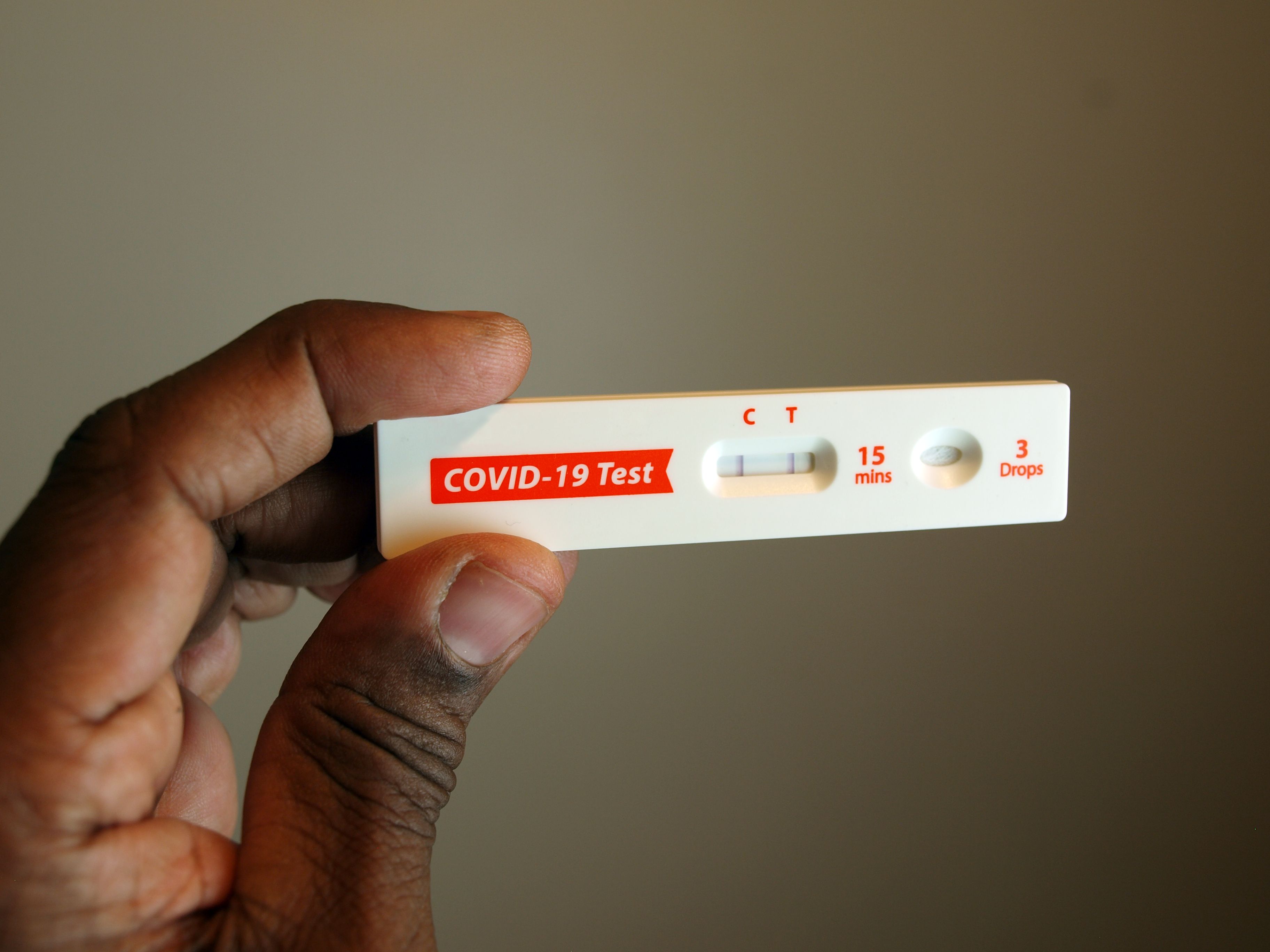The FDA has approved pemivibart (Pemgarda; Invivyd) for an emergency use authorization (EUA) of the prevention—or pre-exposure prophylaxis (PREP)—of COVID-19 in adults and adolescents who are 12 years of age and older who either have moderate to severe immune compromise because of medical conditions or receive certain immunosuppressive medications and treatments that are unlikely to support an acceptable immune response to COVID-19 vaccination. Further, patients who receive pemivibart should not be infected with or have a known recent exposure to someone with SARS-CoV-2.
Pemivibart, which was formerly known as VYD222, is a half-life extended monoclonal antibody (mAb), and is the first mAb to receive an EUA based on an immunobridging trial design to help address the need to alleviate ongoing viral evolution. The EUA of pemivibart is based on data from the CANOPY (NCT06039449) clinical trial, which demonstrated positive results.
“[Pemivibart] is the first authorized mAb from our proprietary platform approach. We are committed to ongoing process improvement while working with global regulatory agencies with the aim to increase the speed and efficiency of new mAb candidate development even further," said Dave Hering, CEO of Invivyd, in a press release. "Additionally, we are planning to explore the protective clinical benefits of mAb prophylaxis for symptomatic COVID-19 disease in future studies."
About the CANOPY Trial
Trial Name: A Study to Investigate the Prevention of COVID-19 with VYD222 in Adults With Immune Compromise and in Participants Aged 12 Years or Older Who Are at Risk of Exposure to SARS-CoV-2
ClinicalTrials.gov ID: NCT06039449
Sponsor: Invivyd Inc
Completion Date (Estimated): November 2024
The CANOPY trial is an ongoing phase 3 trial that enrolled patients to receive either pemivibart or placebo. Cohort A is an open-label, single-arm trial which enrolled patients aged 18 years or older with moderate to severe immune compromise (n = 306), and cohort B is a randomized, placebo-controlled trial in which adult patients who do not have moderate to severe immune compromise received intravenous pemivibart (n = 317) or placebo (n = 162) for the prevention of COVID-19. For this trial, an immunobridging approach was used to utilize the relationship between serum virus neutralizing antibody (sVNA) titers and clinical efficacy of adintrevimab—the parent mAb for pemivibart—that was demonstrated in the randomized, double-blind, placebo-controlled phase 2/3 clinical trial EVADE.
CANOPY utilized current and relevant SARS-CoV-2 variants (eg, JN.1) in the analyses of neutralizing titers and the primary immunobridging endpoint for cohort A was based on calculated sVNA titers on day 28 following pemivibart administration compared with the calculated day 28 reference titer derived from the EVADE trial. The EVADE trial assessed adintrevimab for PREP and post-exposure prophylaxis of symptomatic COVID-19 in patients who were unvaccinated and SARS-Cov-2-naïve. These results indicated an approximate 70% relative risk reduction in the development of symptomatic COVID-19 between the adintrevimab and placebo arms.
After immunobridging the data from cohort A of the CANOPY trial, day 28 had a calculated sVNA titer for pemivibart against JN.1 of 7365 (90% CI: 7148, 7589), and the ratio between the day 28 titer against JN.1 of 7365 and a day 28 adintrevimab reference titer of 8944 was 0.82 (90% CI: 0.80, 0.85), indicated that immunobridging was established in the CANOPY clinical trial. In addition, day 90 had a calculated sVNA titer for pemivibart against JN.1 prior to redosing was 3199 (90% CI: 2995, 3418). Further, the trial predicted that titers against JN.1 are predicted to stay above the reference titer (3514) for a median of 77 days following 1 dose of pemivibart, and the reference titers achieved against JN.1 for 3 months after the administration of pemivibart were consistent with levels associated with efficacy of other SARS-CoV-2-targeting mAbs from prior trials.
“People who are immunocompromised continue to be disproportionally impacted by COVID-19 even after receiving multiple vaccine doses,” said Cameron R Wolfe, MBBS, MPH, professor of medicine, transplant infectious disease at Duke University School of Medicine, in the press release. “I’m excited to have [pemivibart] as an additional COVID-19 preventive option for moderately to severely immunocompromised adult and adolescent patients, such as solid organ transplant recipients and those with hematological malignancies. These types of patients, among others, continue to have both an impaired response to vaccines and a higher risk for severe COVID-19 outcomes.”
According to the investigators, anaphylaxis was observed in 4 participants (0.6%) in the CANOPY trial, all of which were in the immunocompromised cohort A. Of these patients, 2 experienced anaphylaxis during the first infusion of pemivibart, and the remaining 2 during the second infusion. The 4 patients had to discontinue treatments. Except for adverse events (AEs) related to systemic infusion, the most common treatment-emergent AEs (≥2%) in cohort A across both the first and second dose where upper respiratory tract infection (6%); infusion site infiltration, extravasation, or vein rupture (5%); viral infection (4%); influenza-like illness (3%); fatigue (3%); headache (2%); nausea (2%); and local infusion site reactions (2%).
“COVID-19 continues to pose a significant threat and major concern to those who are moderately to severely immunocompromised,” said Jorey Berry, president and CEO of the Immune Deficiency Foundation and a committee member of the Immunocompromised Collaborative, in a press release. “As such, we are delighted that a new mAb for PrEP of COVID-19 will be available soon for certain vulnerable populations.”
Reference







